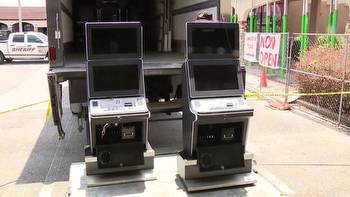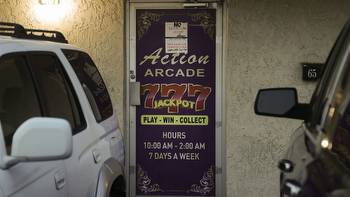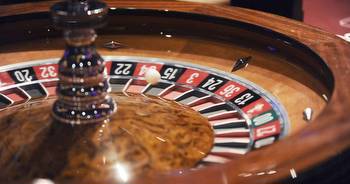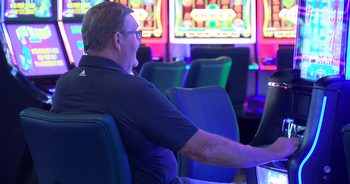VOICES: Is the love affair between seniors and slot machines healthy?

I just heard from my retired schoolteacher sister in Cortland, New York. She’s a habitue of casinos and just happily resumed her visits after a long hiatus.
Like many seniors, she only plays slot machines. Our discussion started me thinking about seniors and our attraction to slots, in particular. Good or bad? Dangerous or innocent entertainment?
I didn’t even realize it was a thing until a bit of research uncovered several opinions on the phenomenon, diametrically opposed: “The evil casinos are unscrupulously preying on seniors,” and “it’s harmless, enjoyable, and even beneficial.”
In “Seniors in Casino Land,” Amy Ziettlow alleges seniors are targeted, lulled, hypnotized and otherwise victimized by casinos. She decries the “predatory practices of casinos towards seniors,” suggesting enticements that amount to “elder abuse” … and sees the glitz as purposeful hypnosis “where players lose track of time and money.” According to Ziettlow’s piece, 75% of seniors favor the “hypnotic” slot machine over other forms of gambling.
Brian Lipovic in “Why do Senior Citizens enjoy gambling so much?” contends that casinos prey on seniors with their “inherent vulnerabilities,” including dementia. Slots are “electronic crack” providing a “cocaine high.”
But I believe it’s insulting to categorize seniors as easily duped and incapable of making rational decisions. Two experienced friends whom I queried emphatically agreed: “It’s no more manipulation than trying to sell us a car,” one said. The other: “We look for a fun afternoon socializing with people. We’ll spend our retirement the way we want; you can’t take it with you when you leave this world.”
Definitely rational opinions. A National Institute of Justice study from 2003 found that elderly casino customers “generally exercise better money management and experience proportionately fewer gambling problems than the general population.”
And according to Evelyn Horan in “Senior Citizens and Casinos,” casinos are purposefully made easily accessible, accommodating and safe. They provide literally fascinating entertainment for seniors regardless of difficulties with sight or hearing and almost all physical limitations.
Neither of the two popular nearby casinos responded when I asked about seniors and slots, but neither website mentions safety, physical accessibility or seniors in any way. So based solely on websites, they appear neutral: not predatory, but not particularly accommodating.
Consider a hypothetical busload of 40 retirees on a casino day trip. Although of varying physical ability, they’re very social and are thoroughly enjoying themselves, talking animatedly about prior visits and sharing plans. By the time they return, some will have won a bit, most will have played out their limit, but all will be well fed and entertained. The average loss is comparable to a lunch with drinks or a dinner theater matinee.
In balance, I believe casinos are fine for the retirees who frequent the “one-armed bandits” (which, long ago, sadly lost their remaining limb).
It’s more about socializing than gambling, and the primary motivation is excitement and entertainment. It’s important that, for a short while, seniors are not marginalized or moved aside. They’re front and center; they’re in control.
Good luck, sis!
David Shumway had a 32-year civil service career as an engineer at WPAFB. He lives in West Carrollton and enjoys traveling and writing.


































